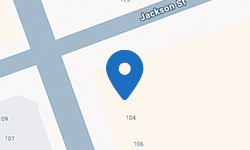What Is the “2-Hour Rule” for DWI in New York?
If you’re ever pulled over and arrested for drunk driving in New York, one thing that can make or break your case is the timing of the chemical test. You may have heard lawyers or officers mention something called the “2-hour rule.” But what does that actually mean?
Let’s take a closer look at this rule and what it could mean for you if you’re facing a DWI charge.
The Law: New York Vehicle and Traffic Law § 1194(2)(a)
This is the law that sets the time limit. It says:
“…no person shall be subject to a chemical test… unless such test is administered at the direction of a police officer… within two hours after such person has been placed under arrest for any such violation…”
In simple terms: Police only have two hours after your arrest to give you a chemical test—like a breathalyzer or a blood draw—to check if you’re under the influence.
Why the 2-Hour Rule Exists
Alcohol doesn’t stay in your system forever. Your body starts processing and removing it as soon as you stop drinking. So, if police wait too long to test you, your blood alcohol level might drop and no longer reflect what it was when you were actually driving.
The two-hour rule helps protect people from being judged by a test result that doesn’t match what was happening at the time of the stop. It ensures the results are as accurate and fair as possible.
Can a Test After 2 Hours Still Be Used?
Sometimes. If the test is done after the two-hour window, it doesn’t automatically get thrown out—but it does open the door for your defense to challenge it. Your lawyer might argue that the delay made the result less reliable or that the officer didn’t follow proper procedures.
In some cases, the court may still allow the test results if there’s a good reason for the delay—like if the person needed medical attention or there was some kind of emergency. But in general, if there’s no clear explanation, a late test can weaken the prosecution’s case.
What You Should Know If You’re Arrested
If you’re ever arrested for a DWI in New York, pay attention to the timing. You don’t have to be a legal expert to remember that police must act quickly. The clock starts ticking as soon as you’re arrested, not when you were pulled over or when the test begins.
If a test was done more than two hours later, you should speak to a lawyer right away. That detail alone could affect how your case turns out.










